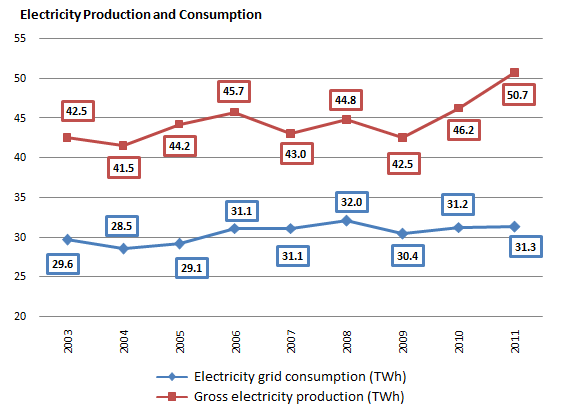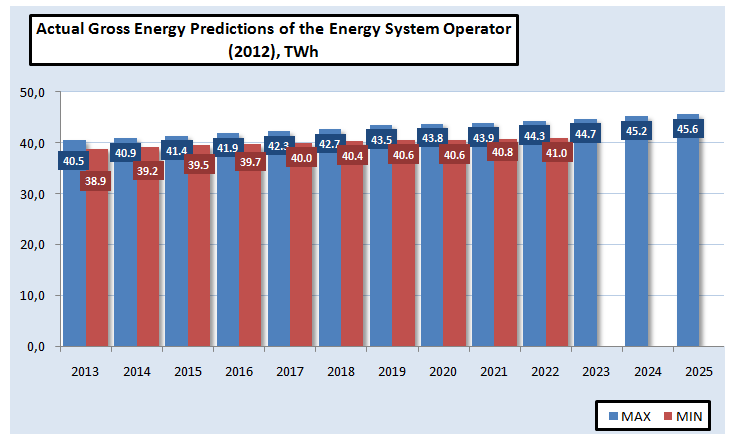The Public Opinion on Belene
As of yet, there is no such thing as a public opinion regarding the construction of NPP Belene. There is an echo of the attempts of those who support the project to convince the public, as well as their not-so-rational arguments. The media campaign surrounding the referendum changed this completely. Even though they are rather popular, the analyses made by IME and other independent observers have almost no effect on the non-reading audience. This week those who do not agree with the construction of NPP Belene are acting to address all the fallacies concerning the project, which are deeply rooted in the public as a result of the efforts of three consecutive governments and the “door to door” campaign that the Bulgarian Socialist Party (BSP) conducted last summer.
Intentional information block
Alexander Kashamov from Information access program (www.aip-bg.org ) writes in regard of this matter in his article “A big part of the Belene documents are not accessible since 2004”, published in Mediapool on January 2nd 2013.
In his article Kashamov reminds us that the Belene project has been restored with two pages of justification (with no appendices) by minister Kovachev on April 29th 2004, followed by public protests and lawsuits; his successor, minister Sevlievski filed a project for second re-start of NPP Belene, adopted by the Concil of Ministers on April 8th 2005. Important parts of the justification required by law are still missing, the economic arguments are incorrect, and the prognosis for energy consumption has obviously been manipulated (information below). A significant part of the materials are secret, and access to them has been intentionally blocked.
The National Electric Company (NEC) has not answered 27 information request regarding Belene since 2004; The Ministry of economy, energetics and tourism, the owner of NEC and the Bulgarian Energy Holding (established in 2007) does not facilitate the process until 2011. There are eight lawsuits regarding the restarting procedure of Belene in the Supreme administrative court only; details about them can be found in Kashamov’s article.
Here I will try to shed some light on some of sources of the main fallacies surrounding the Belene debate and the information about it.
„Electricity export”
This type of export is conducted by private companies and partially by NEC. They sell electricity to neighboring countries at a price twice as low compared to that of Bulgaria’s internal market. This price comes because of NPP Kozlodui, and it is that low because the investment in the power plant has been paid and also because of the existing cross subsidy.
The cross subsidy comes from untaxed import of nuclear fuel from Russia and the delayed capitalization of the fund for decommissioning NPP Kozlodui (this fund is going to need 5.2 billion leva; it currently has around 1.3-1.4 billion, but payments to it were stopped in 2007 and restarted in 2010).
Since the electricity exporters are not well-know, in the Belene debate people usually say that “we export” or “Bulgaria exports”.
Actually, six companies and NEC export and profit from this activity, and the Bulgarian public pays the expenses.
On top of that a certain electricity need of about 30 GWh in Easter Europe is discussed. The source of this information is a presentation by Slav Slavov given on World Energy Council in November 2010 (found easily on the Internet)
Before March 2011, when we published our assessment of the Belene project, we tested this hypothesis by meeting all energy authorities in the Balkans and comparing all the overviews of the future developments of energetics in the region. There is no such need. The most optimistic prognoses state a 4-6 times smaller need. All the countries have the capability to produce it themselves; this, however, does not mean that export from Bulgaria will drop.
It is quite possible that.Savov’s assessment (based on 2008 data – a year of economic growth before the crisis) mutated and moved into different bluffs stated by Belene’s supporters. Such a need for electricity cannot pass unnoticed. And if there was such a need, why nobody said anything about it and why did not president Parvanov convince anybody to invest in Belene or buy its electricity production?
In this respect, there is something more important:
According to art.8 para.4 of the Energetics act, the Minister of economics, energetics and tourism decides on the necessary new electricity production facilities under art.4 para.2 i. 5 in respect of the security of electricity supply and the completion of the obligation for the portion of energy created using renewable energy sources and the gross final energy consumption, as well as the protection of the environment and the support for new technology, when these goals cannot be achieved via market investment mechanisms, based on:
1. the common energy balance prognoses;
2. the obligatory indices on the grade of sustainability of electricity supply;
3. the ten-year development plan for the electric network;
4. the reports on the completion of the National plan for action in the field of renewable energy sources pursuant to art .13 of the Renewable energy sources act.
According to the fifth paragraph of the same article “The minister of economy, energetics and tourism is responsible for the conducting of an energy policy aiming at the development of the country’s energy sector by efficient usage of the energy and energy resources of the country and at meeting the population’s need of electricity and heat, natural gas, oil and fossil fuels on the basis of the common energy balance prognoses In accordance with the Energy strategy approved by the National Assembly”
Therefore, the law states, that:
1. New facilities shall be planned on the basis of prognoses of internal energy consumption;
2. Energy policy should be efficient, i.e. cost-effective;
3. The law does not imply in the least that energy policy can be led by export plans and by wasting Bulgarian taxpayer’s money.
Should some entity want to produce and export something, it is its own business. Nobody should be allowed to ask the whole Bulgarian population to cover the expenses and to share the risk in such a business endeavor; this, however, is exactly what Bulgarian Socialist Party (BSP) wants, on behalf of the investment company and the suppliers of NPP Belene.
Regarding the growth of electricity consumption
Since 2004, in order to bring in the actual goals of the Belene project, Bulgarian authorities (as well as its supporters) have had to manipulate, change or hide the information on internal electricity consumption since 2004.
The most reliable source in this respect is ESO, the most reliable indicator –electricity grid consumption, i.e. the real consumption of energy as delivered by the EDC’s (including technical and trade losses, i.e. theft)
Here is the data for the 2003-2011 period.
|
|
2003 |
2004 |
2005 |
2006 |
2007 |
2008 |
2009 |
2010 |
2011 |
|
Electricity grid consumption (TWh) |
29=. |
28.5 |
29.1 |
31.1 |
31.1 |
32.0 |
30.4 |
31.2 |
31.3 |
|
Gross electricity production (TWh) |
42.5 |
41.5 |
44.2 |
45.7 |
43.0 |
44.8 |
42.5 |
46.2 |
50.7 |

Source: ESO: 2011 Annual report, page 26 (http://www.eso.bg/uploads/file/Annual_Report_2011.pdf)
Comparing the two indicators in the table leads to the following conclusions:
- In the past few years there has been a vast electricity surplus;
- Despite the surplus, production has increased in 2010 and 2011, which also increases export possibilities (not including electricity intended for internal consumption by the producers which accounts for 7-8 per cent of the total production);
- During the economic recovery since 2009 the final consumption remains almost constant;
- The primary fault in Bulgarian energetics remains non-effectiveness.
According to data from the National Statistics Institute (NSI), in 2012 gross (not actual) consumption from the electricity grid is almost certainly between 29 and 30TWh
Here is how the data has been manipulated in order the construction of Belene to appear necessary.

When it comes to energetics, NERA is one of the most renowned consulting agencies. The Saxe-Coburg-Gotha government hired it in 2002. Its predictions however do not coincide with any sufficient lack of energy and therefore in it no reasoning for the construction of Belene can be found. For this reason NEC has been making false predictions.
Pursuant to the current legislation, the Energy system operator is obligated to publish predictions. It has done so up to 2002, i.e. there are no realistic data on which a decision regarding Belene to be based.
In order to deal with this lack of information, IME extrapolated ESO’s prediction up to 2025, as follows:

It is more likely for the minimal predictions of ESO to turn up to be the closest ones to reality – and those are about 37-37TWh in 2025 and 40TWh in 2030. Until then the operating power plants in Bulgaria will produce over 50TWh, in case Belene does not close half of the currently working (and matching all standards) power plants, which work independent from Russian energy sources supply.
An overview of GDP and gross energy consumption follows:

*GDP prognosis for 2012 is based upon the official government prognosis for the growth of the economy. GEC prognosis for 2012 is based on existing data at the time of publishing of this article.
The graph shows that gross internal energy consumption remains unchanged in the past twelve years.
Despite the dynamics of economic development and energy consumption, the export does not decrease, as can be seen on the following graph:

Source: ESO


